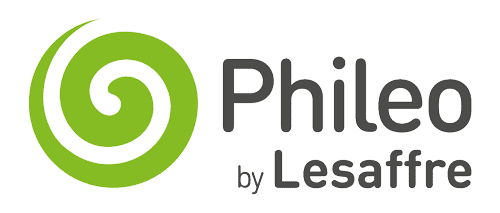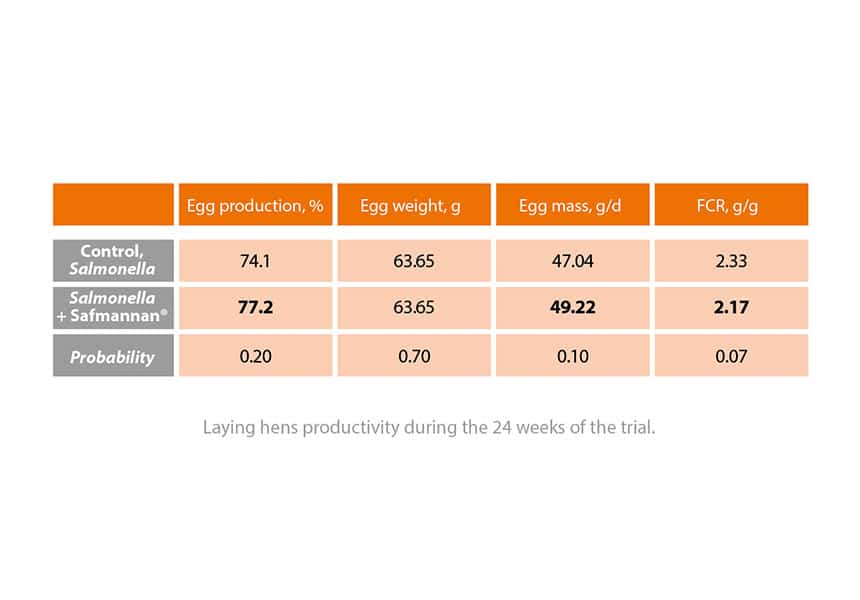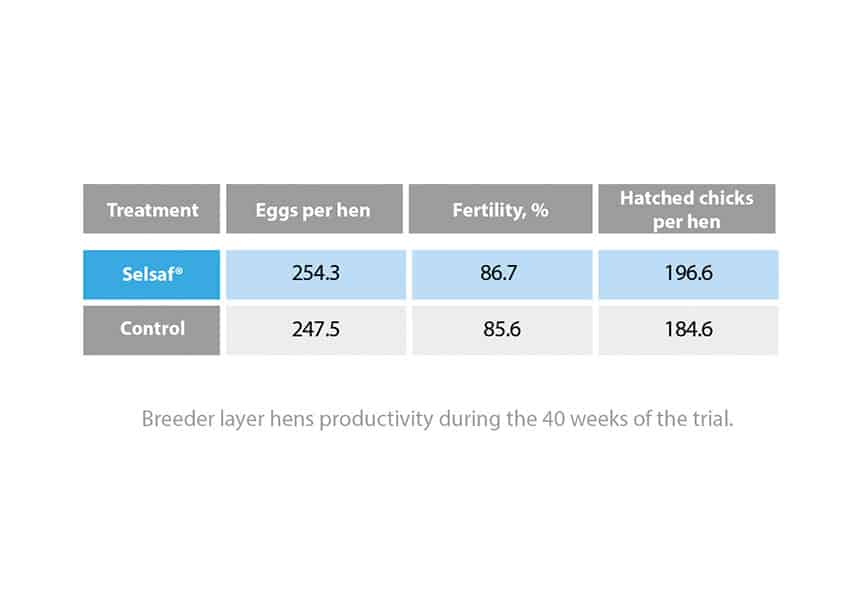Laying layers performances
The objective in layer production is to produce 500 eggs per hen by 100 weeks of age. This creates constant stress for birds due to the passing of protein, fat and energy into their eggs, resulting in chronic physiological inflammation. Some bacteria like E.coli can profit from this intestinal status, growing and impacting on gut health. As 70% of the immune system capacity of birds is concentrated in the gut, the smallest enteritis can impact egg production and make birds more sensitive to disease. Maintaining good gut health is important for transforming feed into eggs and protecting farmers’ margins.
Giving Safmannan® and Selsaf® to high performing birds has been shown to reduce the effects of production stress and maintain good gut health.

Safmannan® can help improve egg production
A trial, by IRTA in Spain featured hens (225 Hy-Line) aged 54 weeks, which were placed in cages for 24 weeks. The hens were fed a corn-soybean diet. Feeding in half the cages included a Safmannan® supplement at 250g/ton. The birds were challenged with Salmonella Enteritidis in order to evaluate the ability of Safmannan® to help prevent the effect of the Salmonella challenge.
Egg production (egg mass) was numerically increased in the Safmannan® group, while feed conversion rates were reduced.
Selsaf® to improve egg production
A 2011 trial in the Czech Republic, featured 1050 breeder/layer hens (Hubbard JA57) and 112 male breeders (M77), supplemented either with Selsaf® or sodium selenite (control). Both groups, from 23-62 weeks of age, were given 0.3 ppm of selenium in their feed. Parameters were measured in periods of 4 weeks.
Selsaf® supplementation resulted in numerically higher egg production per hen, with about 7 eggs more per hen than in the inorganic selenium group. Selsaf® also improved fertilisation rates and increased the number of hatched chicks per hen. An extra 12 chicks hatched per hen was recorded in the Selsaf® group, compared with the inorganic selenium group.
Selsaf® to improve health status and performance in layers
A second Czech Republic trial, run in 2015 featured 1260 laying hens (Bovans Brown) supplemented with Selsaf® or either a synthetic form of selenomethionine (Syn-SeMET), or sodium selenite (SS). All hens were given 0.2 ppm of selenium with their feed from 20-52 weeks of age. Parameters were measured in periods of 4 weeks.
Administration of Selsaf® in the trial with laying hens increased their health status, helping to improve laying intensity, feed conversion rate per egg and survival rate, compared to other sources of selenium, such as inorganic selenium and synthetic selenomethionine















